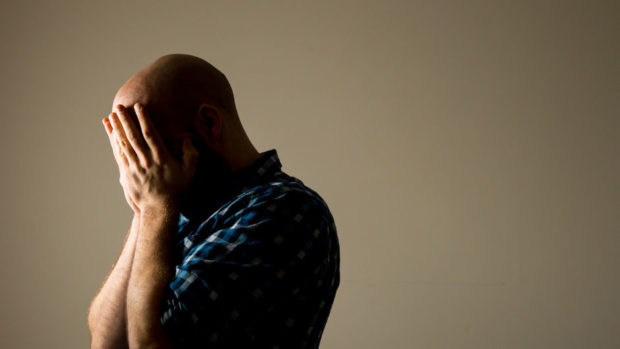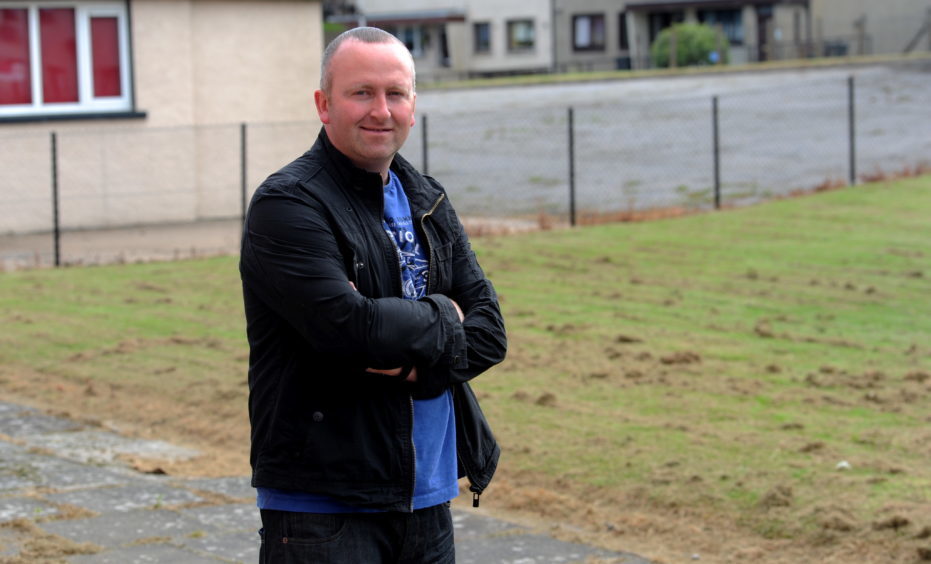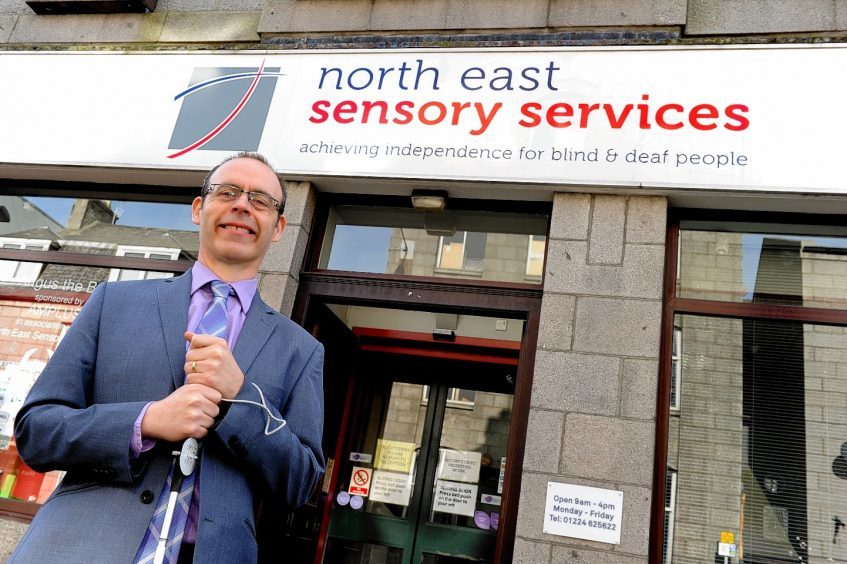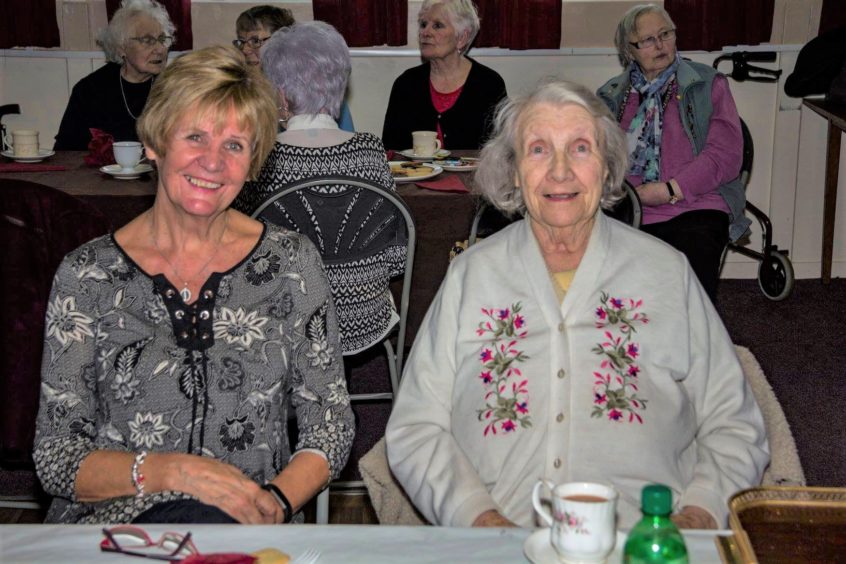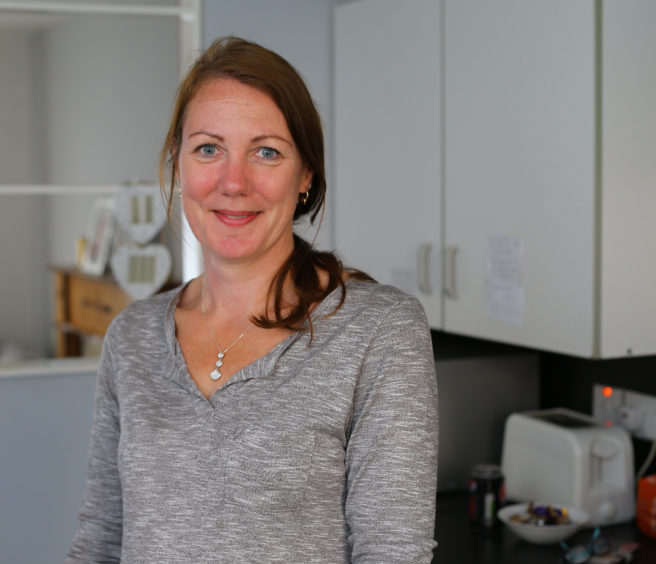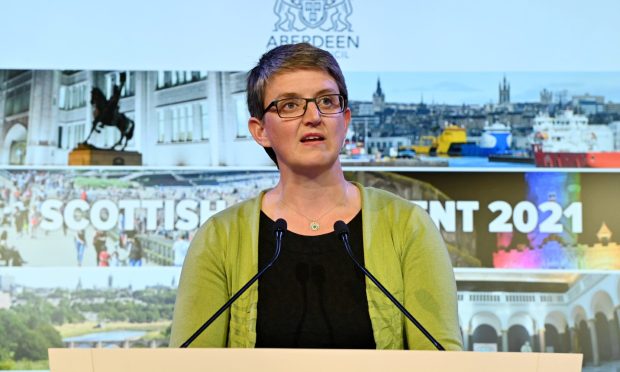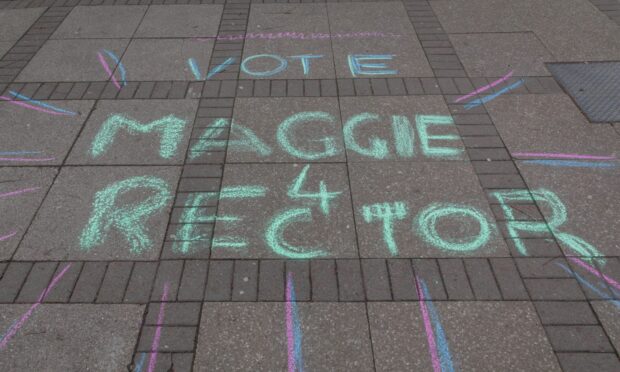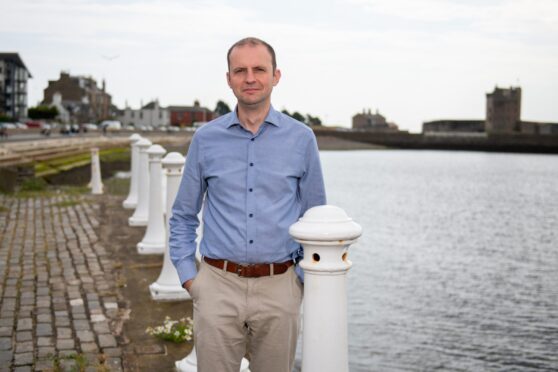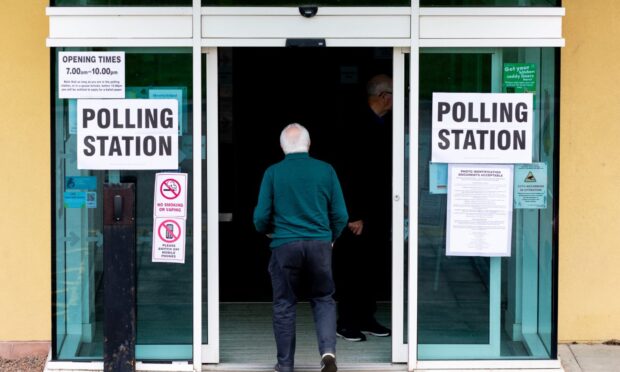Community groups have doubled their efforts to reach those struggling on their own, as new figures show more than a third of people in Scotland have felt lonely during coronavirus lockdown.
An Opinions and Lifestyle Survey from the Office for National Statistics (ONS) found that 37% of those surveyed in Scotland between April 3 and May 3 had felt lonely during lockdown – higher than in England (30.6%) and Wales (27.2%).
Analysis of the data shows that 50.8% of those aged 16 to 24 said they were lonely during the lockdown.
By contrast, just under a quarter (24.1%) of people aged 55 to 69 who reported their wellbeing as being affected by the lockdown said they had felt lonely.
Paul O’Connor is chairman of Inchgarth Community Centre in Garthdee which usually provides 170 sessions a week for groups of all ages from children and young people to pensioners and those with additional support needs.
He said he was not surprised to hear that young people had reported the highest proportion of loneliness, given their active social lives in normal life.
He said: “We see between 500 to 600 young people a week. They’re here every day for something or other.
“Between not being able to go to clubs or school, there will be a massive impact. The best part of being a kid is going out with your friends.”
The community centre has assisted people struggling from loneliness, including those who would normally “fall under the radar” to make sure they are connected to others during lockdown.
He said: “We helped one woman with mental health problems who didn’t go outside much and got her WiFi and a laptop.”
Between not being able to go to clubs or school, there will be a massive impact.”
Paul O’Connor, chairman of Inchgarth Community Centre
Once the lockdown ends, Mr O’Connor is concerned about what kind of services the centre will be able to provide, both financially and due to physical distancing restrictions, as the centre generates the majority of its income from hiring halls and the cafe it runs.
He said: “This will have a big impact on what we are delivering down the line. I do have concerns longer term without significant financial support even just to break even. It could mean more isolation and more people stuck.”
North East Sensory Services (NESS) supports around 6,500 people who are blind, partially sighted, deaf or living with hearing loss, across Aberdeen, Moray, Angus and Dundee.
The charity’s users can already often suffer from isolation and loneliness but this has been exacerbated by the current crisis.
Chief executive Graham Findlay, who is himself registered blind, said: “It can be lonely at the best of times for those that we support, and with a situation like this it can be pretty grim for some of them.
“We are keeping in touch with people as best we can. We have been dropping off batteries for those with hearing aids and setting up Facebook chats so people can keep in touch.”
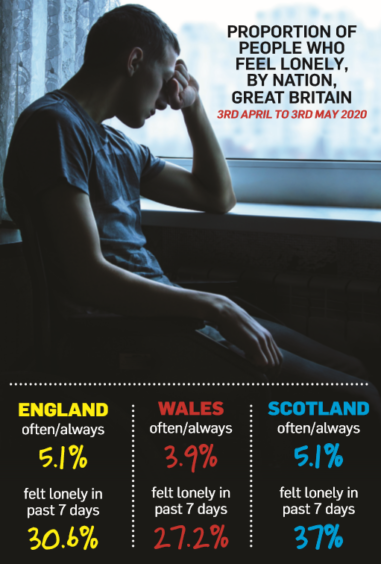
Linda Rendall helps run the Living Well Cafes in Aberdeen, which provide support for people living with dementia and their carers.
This period of lockdown can hit carers hard and she has been keeping regular contact with those who usually attend the cafe by phone calls and posting updates online.
She said: “As the days of lockdown go on, then people are finding it harder and hardthere’s nowhere for people to go.
“It’s a very hard job for the carers. There’s a number of people that have said their dementia has worsened during lockdown.
“That’s really sad to think that’s happening.”
Pauline Cameron, schools co-ordinator at Monifieth Befrienders in Angus, said when the coronavirus crisis started the organisation was concerned for the older people it supports.
She said: “We were very concerned that the people we visited would be lonelier than ever.
“We have various groups that we set up including a weekly lunch time group, a food class and knitting group.
“That’s not happening at the moment so people are missing that an awful lot.”
However, volunteers have rallied around to provide online meet-ups and conversations, with befrienders still dropping off shopping and speaking over the garden wall.
Sixth year pupils at Monifieth High School have also been keeping in touch with the old people they befriended.
She said: “Actual physical contact is what they are missing.”
Dundee Food Train, a charity supporting older people by delivering meals and social contact, have made around 4,600 calls to the city’s elderly since lockdown began.
Emma Black, the charity’s national fundraising and marketing manager, said they recognise that elderly people will feel increasingly lonely during lockdown.
She added: “Some of them are not seeing anyone and it really has highlighted the loneliness that’s out there and people are feeling a wee bit down.”
While reducing social contact can save lives now, there’s no doubt that this has worsened considerably and is having a serious impact on health and wellbeing.”
Brian Sloan, Age Scotland’s chief executive
Brian Sloan, Age Scotland’s chief executive, said: “We know that loneliness is more acute than ever for thousands of older people in the north-east.
“Every day, our helpline hears from callers who are feeling isolated with no one else to turn to. Many have not spoken to a friend or family member for up to two weeks.
“Chronic loneliness was already a serious issue in Scotland before the lockdown, with an estimated one person on every street feeling lonely most of the time.
“While reducing social contact can save lives now, there’s no doubt that this has worsened considerably and is having a serious impact on health and wellbeing.
“There have been fantastic community efforts across the region to reach out to people, but too many still feel there is no one there for them.
“As the lockdown continues, we’re also calling on people not to forget their older relatives or neighbours who might be feeling alone. A simple phone call, note through the door, or chat over the garden fence can make a world of difference to someone isolated at home.”
